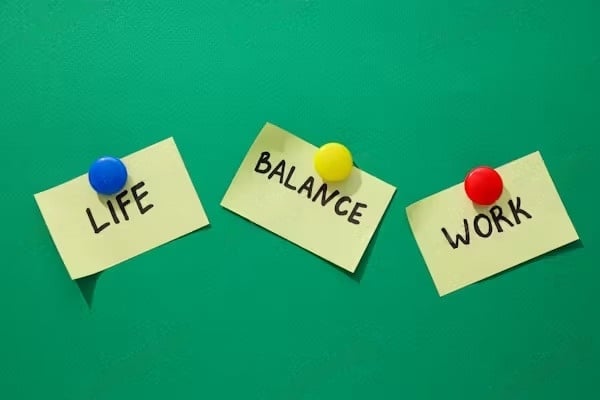Gen Z is emerging to be a strong advocate for a better work-life balance, although they’ve just entered the work field. They are pushing for a healthier, more sustainable approach to work. In contrast to the previous generations, they are putting mental health and leisure time first and rejecting conventional ideas of long hours, work, work and work.
Gen Z Advocates for Work-Life Balance
Hate them or love them, Gen Z is actively reshaping how we think about work, career goals, and personal well-being. They are the first generation to grow up in a world of rapid technological change, social media, and an increased awareness of mental health, as well as the analogue lifestyle. They’ve seen the best of both worlds, which has led them to seek a healthier, more sustainable approach to their professional and personal life.

The Rise of Work-Life Balance
Previous generations, such as the Baby Boomers and Millennials, thought that working overtime and burning themselves out indicated that they were not only professionally successful but they were also a great employee if they worked more than everyone else. However, Gen Z is approaching work from a very different perspective. They are promoting a well-rounded strategy that enables them to have a fulfilling personal life in addition to professional success.
This thinking or perspective has changed due to the mental health crisis that has gained more attention in recent years, as well as learning from their parents that over-working themselves would not be really rewarded in the long run. Studies show that compared to earlier generations, Gen Z is more likely to report mental health issues like anxiety, depression, and burnout, they’ve made stress management, mental health, and self-care a top priority.
Read More: https://www.brandsynario.com/how-gen-z-is-shaping-modern-marketing-through-social-media-habits/
Speaking Up
This generation is vocal and hands-on about the need for employers to offer more remote work opportunities, flexible schedules, and supportive work environments that allow them to grow both professionally and personally. They really understand the value of time, self and technology, seeking a balance that motivates them to be productive without sacrificing their well-being and personal time.
Mental Health and Well-being
Previous generations who truly believed in the slogan ‘work comes first.’ And that’s what they did, neglecting themselves, their families, and most importantly their health; both mental and physical health. Mental health is another critical aspect of the work-life balance debate for Gen Z. They’re vocal about mental health support and the importance of stress, burnout, and emotional exhaustion, unlike the older generation that took everything that they got.
Change in Pakistan: Slow but Steady
Many of the biggest, most successful companies in Pakistan, are scrambling to change their company cultures to appeal to their new batch of interns or associates. Some of whom are demanding shorter hours, four-day work weeks and strong commitments to paperless and sustainable environments.
They prefer changing jobs frequently to job stability and have a desire to share assets and own less rather than aspire to the traditional goal of owning a house and luxury goods.
Salman Shahid, founder of the Pakistani company ‘Gray Matter Global’, expresses that the new generation of workers in Pakistan is still looking for conventional jobs, instead of pursuing their entrepreneurial ventures. However, he asserts, that the degrading economic conditions are forcing the youth to look for other sources of income. Shahid says that the verdict of becoming ‘your own boss’ started as a joke, but it is now becoming a reality. Young people prefer internships and freelancing because of the flexibility in working hours and reducing their travel expenses due to working from home and with relatively good pay.













































